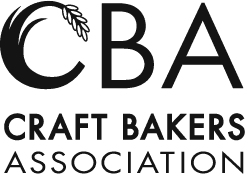Nov 28, 2024
Hugo Walker
In today’s fast-paced food manufacturing and distribution sectors, the way businesses manage customer orders and provide an efficient, seamless experience can be a key differentiator.
Platforms like Rekki and Choco, which offer useful marketplace solutions, may seem like convenient choices. However, for enterprises looking to maintain control and enhance customer satisfaction, a dedicated B2B enterprise ordering and customer experience platform offers far greater value and flexibility.
Here’s why you should consider investing in a B2B enterprise platform over a marketplace solution.
1. Keep Control of Your Customer Experience and Ordering Platform
When you opt for a marketplace solution, you’re essentially handing over part of your customer experience to a third party. In contrast, a dedicated B2B enterprise platform puts you in full control of how customers interact with your brand, ensuring that their experience aligns with your business values and expectations. From the ordering process to customer support, you can tailor every interaction.
2. Bring All of Your Ordering Channels Together
A B2B enterprise platform consolidates multiple ordering channels such as EDI (Electronic Data Interchange), web, email and marketplaces into one unified platform, streamlining order management from a single location and reducing the risk of errors.
Unlike a marketplace, which serves as a single channel to reach customers, a B2B platform offers complete consolidation, creating a consistent process that benefits both internal teams and customers. This leads to significant improvements in order processing efficiency and a better overall customer experience.

3. Control Your Own Branding
One of the most significant advantages of a dedicated platform is the ability to control your brand identity. Unlike marketplace platforms, where your brand is often diluted or hidden among others, a B2B enterprise platform allows you to maintain consistent branding across all customer touchpoints, reinforcing brand loyalty and recognition.
4. Define Your Own Business Rules
Every food manufacturer or distributor has unique business rules — from cut-off times and minimum order sizes to dispatch locations and product substitutions. A B2B enterprise platform offers the flexibility to define and automate these complex business rules, ensuring that your operational needs are seamlessly integrated into the customer ordering experience.

5. Improve Presentation, Product Information and Customer Experience
High-quality product presentation is essential for driving customer satisfaction and sales. A dedicated B2B platform enables you to showcase your products with detailed information, accurate images and clear product descriptions, ensuring that customers can make informed purchasing decisions. This level of customisation is often not possible with marketplace platforms, where the product information may be limited or out of your control.
6. Handle Complex Business Rules
Many businesses require the ability to manage intricate order requirements, such as cut-off times, minimum order sizes, dispatch logistics and product substitutions. A B2B enterprise platform allows you to implement and automate these rules, tailoring the order process to your specific needs. Whether it’s ensuring that regional dispatch centres are assigned orders or managing pack sizes, the platform simplifies complex tasks that a marketplace solution may not accommodate.

7. Seamless Integration with Your ERP or Financial Software
One of the most powerful advantages of a B2B enterprise platform is its ability to integrate directly with your existing ERP or financial software. This integration provides real-time data syncing, ensuring that inventory, order status, and financial records are always up to date. This level of efficiency is critical for reducing manual data entry and minimising errors, something that marketplaces may not fully support.
8. Gain Valuable Business Analytics and Custom Dashboards
Understanding customer behaviour and optimising operations is crucial for growth. A B2B platform provides in-depth analytics and customisable dashboards that give you a clear view of sales trends, order patterns and customer preferences. These insights enable smarter business decisions, helping refine your strategies and better serve your customers.

9. Protect Your Customer Relationships
When you use a marketplace platform, your customers may be exposed to your competitors' products. This lack of exclusivity can erode customer loyalty and shift business away from your brand. A B2B enterprise platform, however, keeps your customers focused on your products and services, giving you more control over the customer relationship and preventing competitors from encroaching on your market share.
10. Create Bespoke Visual Promotions
With a B2B platform, you have full control over promotional campaigns and marketing initiatives. You can build tailored visual promotions that align with your brand’s marketing strategy and adjust them as needed. This flexibility is something marketplace platforms don’t offer, where promotions are often standardised and shared across multiple vendors.
Conclusion: Control, Efficiency and Customisation Are Key
Choosing a B2B enterprise ordering and customer experience platform over a marketplace like Rekki or Choco means retaining full control over your brand, customer relationships and operational efficiencies.
While marketplace platforms can be helpful, they often limit your ability to tailor experiences, enforce complex business rules and offer full integration with your back-end systems. A unified B2B platform ensures that you not only improve efficiency but also deliver a better, more consistent ordering experience that builds customer loyalty.
For food manufacturers and distributors looking to stay competitive and enhance their operational control, a B2B enterprise platform is the clear choice.
If you'd like to learn how mezzeIQ's ordering and automation platform can enhance your food manufacturing business, contact us today.






